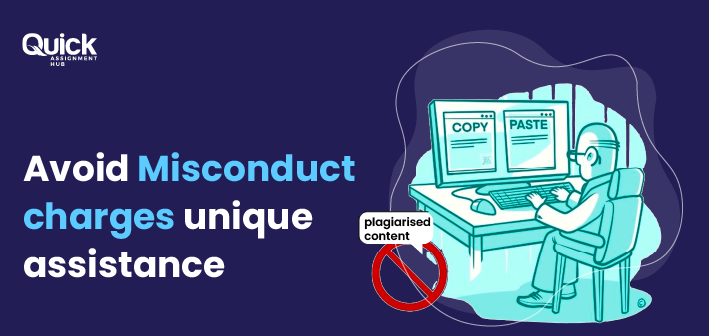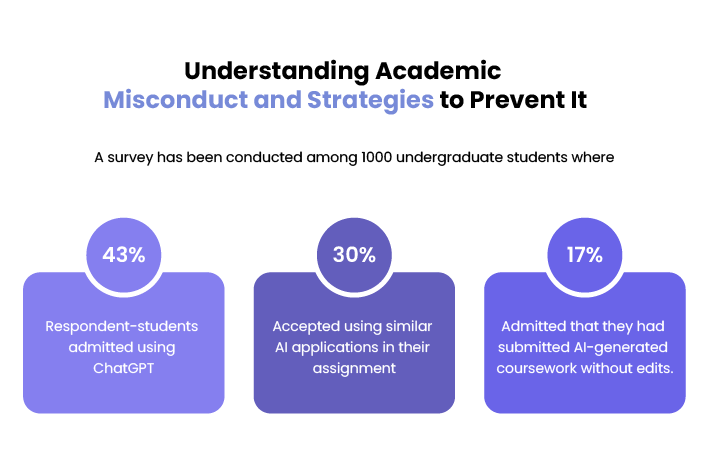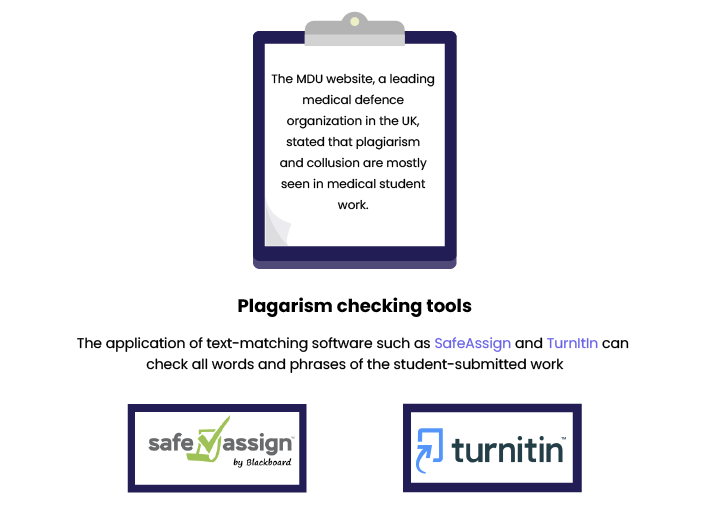
Every coin has two sides, and every technological change can possess blessings and challenges. As there is technological advancement, there is a chance of inheriting unfair practices among students in the academic world.

In this survey, we can observe how the students indulge in unfair practices, which are against the academic rules and guidelines. These unethical practices can restrict students from fostering developmental aspects and hinder their academic life. If students are caught red-handed in this academic misconduct, they might get expelled from their universities and colleges.
In this blog, we will explore how students can avoid misconduct in their academic world to get good grades and gain higher esteem and respect among their peers and professors.
Students must remember that misconduct can be embarrassing and hurt their careers and reputations.
When it comes to academic misconduct, include;-
Academic achievement is at stake
Degrade the core values of academic integrity
When it comes to compiling all regulations, policies, and procedures, failed to determine the conduct of candidates during the assessment.
When it comes to Academic misconduct involves many forms, such as( cheating or helping someone to cheat). The good news is that student can avoid misconduct in their academic domain. Let's discover more one by one here!
Click here to explore: 20 Trending Medical Law Dissertation Topics
Students need to understand academic dishonest practices to avoid misconduct charges from the professor. So, here are the four common causes the student might get familiar with it such as;-
Poor Scholarship and Poor Time Management
Many instances of academic misconduct give rise to poor scholarship and time management. The students often delay or mismanage their schedules, running until the last minute to complete their tasks. This leads to adopting many shortcut methods like cheating, coping from their peer notes, etc. Even though they copied before the final submission, the student won't thoroughly and accurately review their paper.
Not Understanding What Is Required at University
Transitioning to a new university can overwhelm students with different expectations and academic standards. Students might need help to adapt to the current academic standard because most UK and Australian universities uphold academic integrity throughout their studies. This forces the student to use easy methods like cheating, which is against the academic code of ethics.
Cultural Considerations and Differences
Cultural backgrounds also impact students and their perceptions of academic rules and integrity. For instance, some cultures allow students to quote from a text or use ideas without referencing them, especially the Australian university staff and professors who show respect for these works when students use a referencing system, such as APA, Harvard, or Vancouver. The policies might differ in other countries, and they may not support this when adhering to these standards. This also forces the students to indulge in various cheating practices.
Being Unfamiliar with the Rules and Policies
Many students must become more accustomed to their institution's rules and policies. This leads students to commit academic misconduct. A student must know the policies to avoid unintentional violations, including improper citation or unauthorized collaboration. So, students need to be aware of academic integrity policies upon entering university.
There is a saying, "Wrong is always wrong." Many students are involved in these practices, which is not good against the university's academic code of ethics. So, students should know how to avoid cheating and misconduct. Let's explore here;-
Avoiding plagiarism
Students must always give credit to the sources of information they have taken to avoid plagiarism. If it is essential to differentiate their ideas from those of others, then using appropriate citations and quotations is very important. Getting more familiar with the specific citation style needed for their course is vital. To avoid misconduct, one can use plagiarism detection tools like Turnitin, Grammarly, and Copyscape. Students need to understand the difference between paraphrasing and direct copying, which is important.
Don’t miss this: Business Law And Corporate Law

Avoiding personation
Personation, or pretending to be someone else during an exam or in an academic assignment, is a serious offense. One can avoid misconduct practices of cheating by not sharing your login credentials or identification with others. Institutions have stringent measures to check identities during examinations, and being caught in personation can lead to expulsion.
Avoiding Misconduct in Exams
To avoid misconduct practices during exams, students prepare thoroughly to foster confidence and reduce the lure to cheat. Students must follow all exam rules strictly, keep their eyes on their papers, and avoid bringing unauthorized materials into the exam room. If you have bought any gadgets and are unsure, it is better to ask your instructor beforehand. Always assume that surveillance methods are in place to detect cheating.
Misuse of Computing Facilities
Students must be prohibited from using institutional computers or networks to engage in dishonesty, such as accessing unauthorized resources or manipulating data. Students must follow all of their institution's IT policies and then make use of computing facilities that are ethically permitted. Students must be sure that any data manipulation is done strictly within the guidelines set by their educational institution.
Students must learn to avoid misconduct charges from their professors by following honesty practices in their academic life because honesty is the best policy! Students using healthy practices in their academic life is best; they might be rewarded and respected.
Students adopting fair practices in their academic disciplines can make them flourish and become successful. Using shortcut methods like cheating or other means of cheating in their academic spaces can give short-term happiness, and one day; they have to pay for this in terms of failure and disappointment. So please read this blog. Students must avoid misconduct practices such as cheating in their academic life.
Explore more: Trending Topics For 2025 To Ace Your Law Assignment